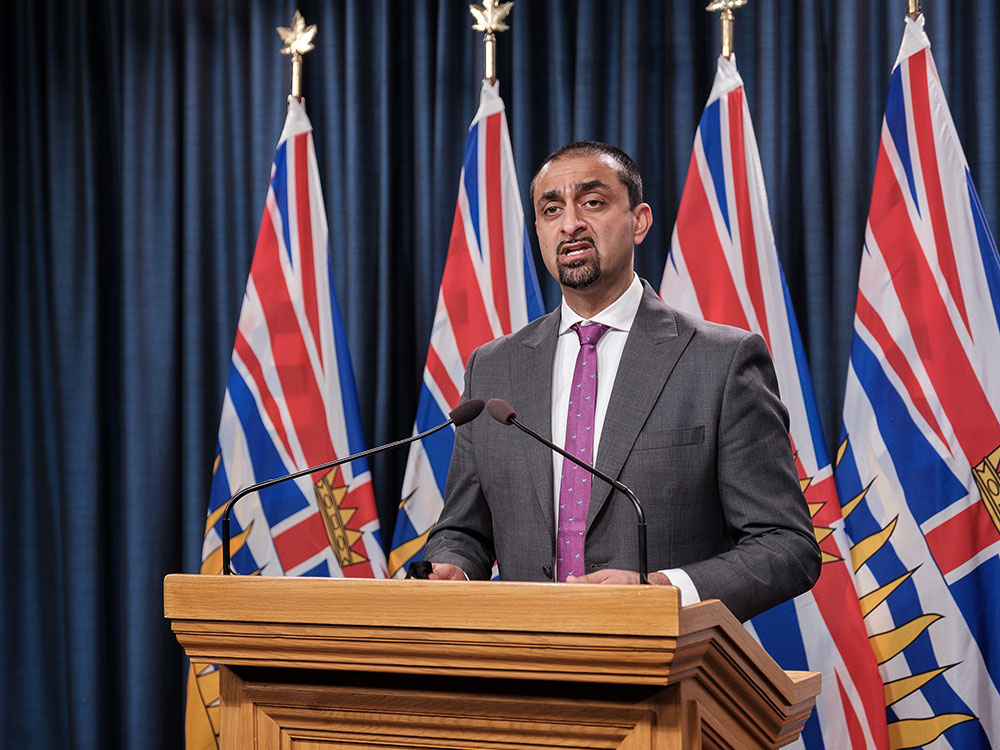Fewer B.C. seniors are qualifying for grants to help pay the rent as the government has failed to adjust the Shelter Aid for Elderly Renters program to rising incomes and housing costs, says Seniors’ Advocate Isobel Mackenzie.
Housing Minister Ravi Kahlon said Tuesday that BC Housing recently completed a review of the SAFER program and changes are coming soon.
Mackenzie’s latest report says changes are overdue.
“I cannot emphasize enough the challenges with this program and while it is well intended, it is not meeting the needs of senior renters,” Mackenzie said while presenting the "Monitoring Seniors’ Services" 2023 report.
Over the past five years the population of seniors has increased in the province, but the proportion receiving SAFER grants has dropped by 14 per cent, the report found. The number of seniors receiving the subsidy dropped to 23,506 in 2023.
For those who did receive the grants, the average amount they received decreased by eight per cent even as their rents went up by 12 per cent.
“That’s not because there’s fewer people who need the program,” said Mackenzie, who 10 years ago became B.C.’s first seniors’ advocate and who retires at the end of this month.
According to the seniors' advocates' report, the average SAFER subsidy was $198 per month in 2023, so the program would have cost $55.8 million.
Lack of affordable housing is tied to premature admissions to long-term care and to people staying in hospital longer than necessary, she said, both of which come at a cost to the public.
Part of the issue is that income caps for the SAFER program haven’t risen over the last five years, she said, noting that the average income of a person receiving the subsidy is $20,800 a year.
“People on pension incomes who get their cost of living increase find themselves bumped out of being able to access the SAFER grant, although they are still very low income... they’re above the cutoff.”
At the same time the SAFER program has a rent ceiling of $803 and does not pay a subsidy for any rent above that, Mackenzie said. The average rent for a one-bedroom home in Vancouver has risen to $1,696, but the SAFER rent ceiling has been static.
“The nut of the problem is this rent ceiling,” she said. “I think it’s the easiest one to fix.... It could be done overnight.”
The ceilings should be raised significantly, she said, at least to meet the average rent of a SAFER recipient. After that the ceiling should increase each year to match the allowable rent increase in the province, she said.
“I know BC Housing is working on this, but they have been working on it for a rather long time and there are people out there who are increasingly finding it difficult to pay their rent each month,” Mackenzie said. “I don’t know why it has taken so long. That’s a question I think the minister would have to answer.”
Kahlon appeared Tuesday with Premier David Eby at an event in Surrey highlighting the building of 1,954 new affordable homes for renters in Metro Vancouver in partnership with non-profits through the Building BC: Community Housing Fund.
“We know that more and more seniors are starting to face real challenges when it comes to finding housing and just the challenges of affordability,” said Kahlon.
BC Housing has just completed the review of the SAFER program, he said. “We are looking at how we can reform that to ensure that it meets the needs of seniors today. We’ll have more to say on that in the coming weeks, but we are just finalizing that review and action plan going forward.”
The grants are one of the tools available to the government to address the housing crisis, Kahlon said, noting that after forming government the NDP increased the program funding by 48 per cent.
A housing ministry spokesperson later clarified that in 2018 the government expanded SAFER eligibility and increased the average monthly payment by 42 per cent, raising it from $187 to $265.
“We have seniors who have helped build this province who are now struggling for housing,” Kahlon said. “That weighs on us very heavily.” ![]()
Read more: Rights + Justice, BC Politics

















Tyee Commenting Guidelines
Comments that violate guidelines risk being deleted, and violations may result in a temporary or permanent user ban. Maintain the spirit of good conversation to stay in the discussion and be patient with moderators. Comments are reviewed regularly but not in real time.
Do:
Do not: